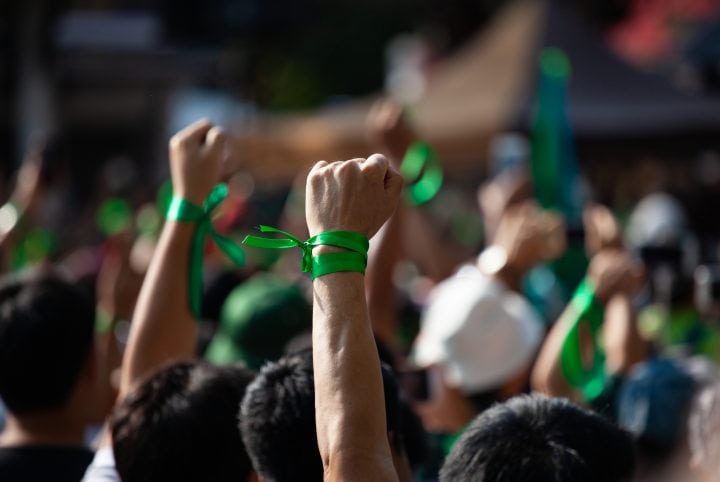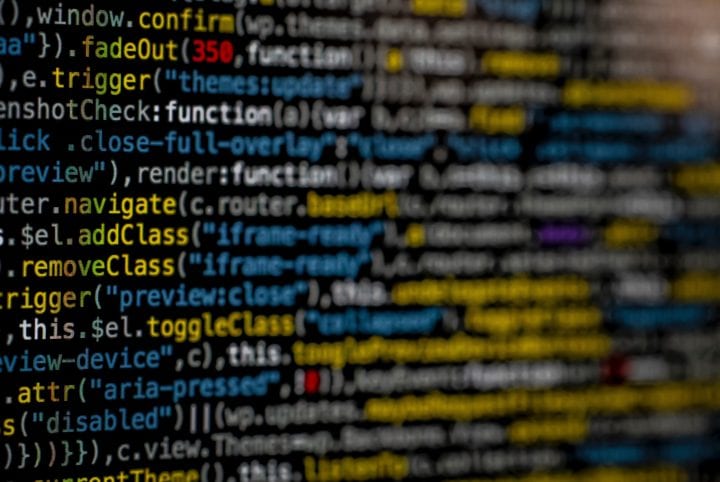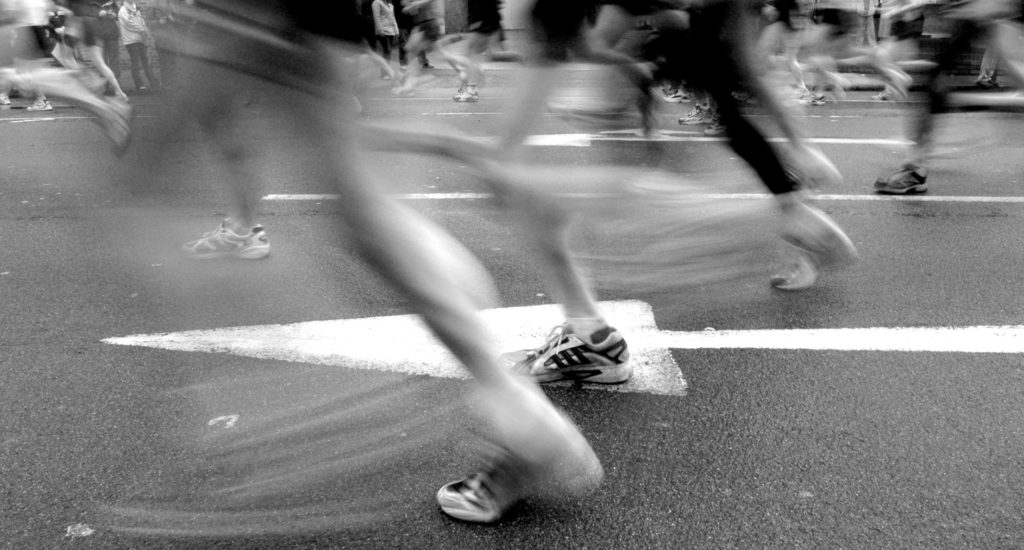
The marathon runner’s dream of breaking through the two-hour barrier is now in sight.
Just how fast is it possible for a human to run a 42.195 kilometre (26.2 mile) marathon? In 2018, Kenyan Eliud Kipchoge made history by running 2 hours, 1 minute and 39 seconds (2:01:39) at the Berlin Marathon. The Holy Grail for marathon runners is to break the two-hour barrier. But when will it happen? And how fast can a human run?
New research from Monash Business School shows that it is possible to predict how likely and when the sub-two-hour barrier will be broken.
Using a statistical model of official IAAF world record marathon performances of men and women since 1950, economist Dr Simon Angus predicts the sub-two moment is likely to happen around May 2032.
And running the model into the distant future, he has also determined that 1 hour, 58 minutes and 05 seconds (1:58:05) is likely to be the fastest time that any man will be able to run the distance.
Breaking two
Eluid Kipchoge was dubbed the ‘fastest man in the world’ when he set a new world record at the Berlin Marathon on 18 September 2018.
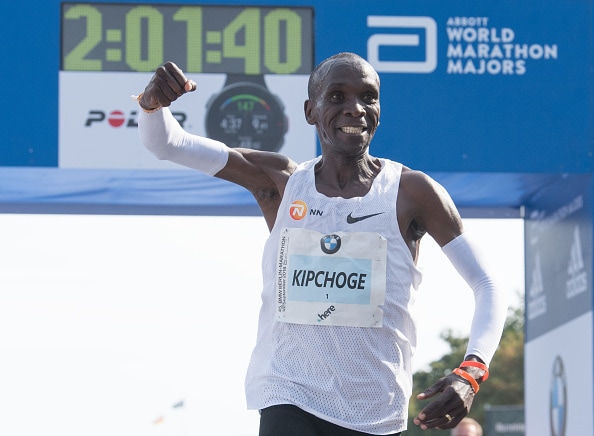
Kenyan marathon runner Eliud Kipchoge wins the 2018 Berlin Marathon. (Getty Images)
Kipchoge, who also ran 2 hours and 25 seconds (2:00:25) in the Italian city of Monza last year as part of the Nike Breaking2 Project – thinks it is possible. Although the run in Monza did not count as an official world record as pacers were subbed in and out of the run.
In an interview with The Guardian Kipchoge insisted: “It is not rocket science to break this barrier. You simply have to believe in it. And you need a great team that believes in it and in you, the perfect shoes, and to be stronger than any runner before. Then everything is possible.”
Dr Angus agrees with Kipchoge but believes that the evidence suggests that we’ll need to wait a while before the sub-two-hour dream is realised.
Dr Angus’ study also provides estimates for the limits of female athletic performance, finding that the ultimate female marathon record will settle at 2 hours, 05 minutes and 31 seconds (2:05:31).
The applied statistics research published in Medicine and Science in Sports and Exercise – the American College of Sports Medicine’s flagship journal – shows that the chance of a female athlete ever breaking the two-hour mark is less than one in 100.
“I set out to address all three related aspects of world record marathon performance in one modelling framework – the sub-two-hour limit, the limits of human physiological running capacity and the so-called gender equivalence question,” Dr Angus says.
Berlin beckons
While the statistical data shows the likely date of the world record run to be May 2032, there are only certain IAAF marathon events in which a world-record time would stand as an official record.
“If an IAAF marathon were run in May 2032, then I would predict that there is a one in 10 chance (10 per cent likelihood) that a runner in the event would run sub-two-hour, which is the ‘reasonable chance’ level of likelihood I adopt as a baseline in the study,” Dr Angus says.
“For example, Kipchoge’s most recent world record time sits just inside the one-in-four odds prediction line in the model – suggesting that Kipchoge’s time had a 25 per cent likelihood of occurring on that date – so in some ways, while the run was indeed a wonderful achievement, from a statistical standpoint it was not altogether surprising.”
The last seven male world records have all been broken in Berlin.
“Berlin in September has the perfect conditions, it’s basically a flat course, the temperature is often optimally cool and there is often no wind,” Dr Angus says.

Conditions in Berlin are considered perfect for marathon running.
Sub-two equivalent for women
While the sub-two-hour question for males has received both academic and community interest, far less attention has been paid to the equivalent threshold for women.
Dr Angus argues that a sub-130-minute mark for females would be an appropriate choice.
“If I back out the exact equivalent ‘sub-two-hour’ threshold for female athletes, based on the performance gap between the two-hour mark and the limiting time of 1:58:05 for men, then you come up with 2 hours, 07 minutes and 33 seconds,” he says.
“So a 130-minute marathon (2 hours, 10 minutes, 00 seconds), seems a reasonable focal time for the global running community to target.”
With the current female world record marathon set at 135 mins, 25 seconds this time sits just five minutes and 25 seconds off the threshold.
“Whereas for males the sub-two-hour crossing point lies more than a decade away (at 10 per cent likelihood), for females, the sub-130 crossing point occurred in January 1996 suggesting it is well within reach,” Dr Angus says.
This highlights the potential barriers elite female athletes face in marathon running.
“There’s been something of a ‘world record drought’ in the female marathon, with the current record holder, Paula Radcliffe’s 2 hour, 15 minute, 25-second mark, set in 2003, still standing,” he says.
“I believe that a ‘130-minute marathon’ project, advocated in the study, would empower female long-distance athletes.”
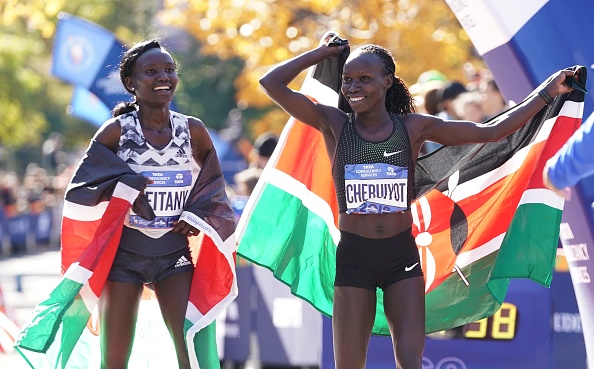
New York marathon winner Mary Keitany (left) and second-place getter Vivian Cheruiyot in 2018. (Getty Images)
Programs needed to boost female marathon runners
Why are we living through a female marathon world record drought?
Dr Angus believes there are a number of cultural, economic and commercial issues preventing an ‘energetic pursuit’ of the female world record.
“If we see the same intensity of pursuit with women as we have seen for the male mark, then it is likely that the record would be broken quite quickly,” he says.
“I would love it if a company or brand would pick up the ‘130 target’ and use it to platform female elite sport. There is huge potential here for female athletic achievement with a global impact.”
If we look at the current spate of top Kenyan and Ethiopian male runners, where are the equivalent females?
Dr Angus suggests that the equivalent female world-record runner may be restricted by her circumstances, looking after the family and getting food on the table but with no cultural or economic opportunity or incentive to train for a marathon.
“In many African communities, especially those with the best genetic indicators for endurance performance, from an economic perspective, going for a run is very costly. If there are not on ramps that help to relieve women from economic and cultural demands then this is where you end up,” Dr Angus says.
The economic model Dr Angus developed is, on average, accurate to within one per cent for men – or around 70 seconds – across a 66-year period, which saw a 19-minute reduction in the world record time.
For women, accuracy is within three per cent – or roughly 200 seconds – across the same period where the world record dropped by one hour and 22 minutes.
